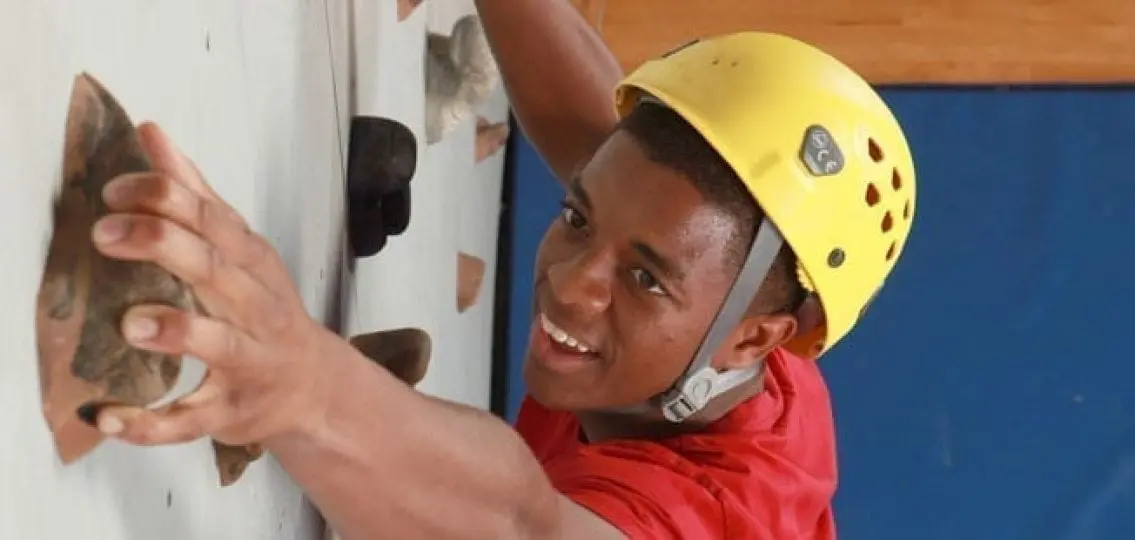Resilience. I’ve heard so much about this wonder trait lately.
College administrators warn that today’s college kids are mentally fragile, unable to cope with failure or disappointment, or even getting a B. Parenting experts warn us that we can’t smooth out every little bump and protect our kids from failure, and that successful people are resilient: they have a strong work ethic, perseverance, and the ability to get right back up after they crash.

All of that sounds really great, doesn’t it? I definitely want some of that for my kids!
Thing is, nobody really focuses on what you have to go through before you emerge as wonderfully resilient—you know, the part where you struggle and fail. Well, here’s what the struggle and failure part of resilience looks like.
The First Step to Building Resilience? Failure
Our daughter just finished her sophomore year of college studying computer science. Despite eighteen credit hours and two upper level courses, everything started out great this semester. My husband and I flew to Boston to visit her over President’s Day and had a wonderful time eating out, going to museums, and shopping. She was upbeat and cheerful, and we had a gay old time.
It didn’t last long. Two days later, after a movie with my husband, I noticed three missed calls on my phone, and a “Call me ASAP” text from her.
The phone call/text combo is never a good sign. She was distraught: she had just gotten several grades back in her Networks course, and halfway through the semester, she had a 26 average. Her assigned partner, Cheryl, wasn’t doing her share of the work. She was sleeping through class, and didn’t seem to care about her grade.
In between sobs, I heard phrases like “I’m seriously looking at failing,” “I’ve reached my intellectual capacity,” and “Everyone is smarter than I am.” She even mentioned dropping out.
And I couldn’t exactly say everything was going to be fine because, well, she was failing.
It’s Hard to Watch Your College Student Struggle
It’s torture to watch your kids struggle and not be able to do anything about it. I was an English major—I don’t know anything about writing code or systems or whatever it is she studies so I can’t help that way. I’m six hundred miles away, so I can’t even do her laundry or grocery shopping for her.
I didn’t know how to help, either. Should I just let her vent and murmur, “Wow, that sucks,” or was this some sort of mental health crisis where she needed intervention, or maybe some tough love where I tell her to suck it up and stop with the self-pity? Tough call.
I remembered talking to the freshmen year dean of a prestigious liberal arts college who told me that in her experience, students only fail when they: (1) don’t do the work; or (2) don’t care enough to get help.
Well, our daughter cared –a lot –and she was doing the work, but she just needed help. She also needed to learn to handle this on her own and to self-advocate.
How We Helped Our Daughter Build Resilience
So here’s what we did.
1. Go ask for help.
We forced her to go speak with her professor and explain that she cared about the class, wanted to do well, and needed help. She had a million excuses and argued with us that it wouldn’t make any difference, but we were adamant.
Dying inside, she made an appointment to speak with her professor during office hours. And guess what? She learned that he was kind, sympathetic, and wanted her to succeed, too. He matched her up with a new partner, gave her his cell phone number to call any time with questions, as well as a few tips to help her get unstuck on a difficult part of her project.
2. Take one day at a time.
We told her to take a deep breath and stop worrying about “What if?” She’s a born worrywart, and she was getting caught in an anxiety spiral that was really paralyzing.
Her new partner showed her how to break down large projects into smaller tasks, divide them up into a daily list, and make notes showing each person’s responsibilities. Focusing on completing daily tasks really helped her control her anxiety.
3. Praise hard work, not the outcome.
We told her over and over again just to do her best, and not to worry about the grade. We gave her permission even to fail the course, so long as she could say that she had tried her best. And we told her we were proud of how hard she was working. The freak-out texts became less frequent, as she let go worrying about the grade and focused on the material.
The remaining six weeks of the semester saw her sweating for every point. At every office hour, she went to review code with her professor. She haunted the computer lab meeting with the T.A.s. She turned down an offer to go to Florida for spring break. Instead she spent break re-doing a project for a better grade.
Founder’s Day and the Boston Marathon festivities? She skipped them all to study. And with each improving grade, she saw her hard work pay off. At the end of the semester, she and her partner submitted their big project, and felt triumphant when they earned the second highest score in the class.
This semester isn’t going to be one of her favorite memories of college (“It was living hell”). But the pride and sense of accomplishment that she gained are worth all the blood, sweat, and tears.

She learned she can bounce back from failure, and that precious resilience will help her out the next time things get tough.
And the final grade that made it all the sweeter? Dear Reader, she got an A-.




